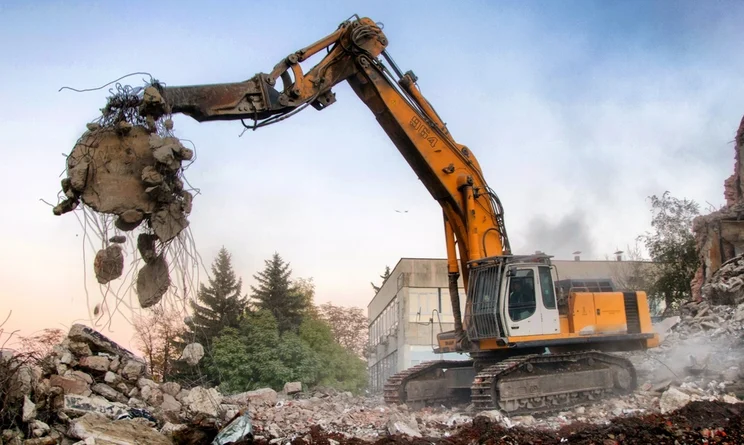Introduction
When building a new commercial or residential construction project, the accumulation of debris and waste is usual, and there is a need to manage and dispose of the on-site waste effectively. With changing times, construction companies are looking for ways to deal with waste effectively so that the construction process can be carried out smoothly. Waste management also leads to optimum resource planning for the building and presents opportunities to integrate waste in any manner that reduces the project’s cost.
A systematic approach to garbage segregation and recycling adds to the sustainability of the construction project and helps residential builders and construction companies adhere to environmental regulations. Waste management also reduces the strain on the environment and curbs the pollution caused by constructing a new building. In this blog, we will see how to segregate garbage while building a new project on an older site and why it is the segregation process essential. Let us get started with an insight into one of the most important pillars of the construction industry, construction waste management.
Segregating Garbage While Construction
Let us understand why you must ensure garbage segregation and recycling during construction. Planning and organising the construction site for waste management is a good kickstart for the project. You need to consider various things when segregating construction debris and garbage. Below are some of the points that outline how you can segregate the on-site waste, recycle it, and manage to reduce the waste.
Carefully Plan The Demolition
The first step towards segregating garbage on the construction site is to plan the demolition of the old building carefully. After that, you need to plan the layout of the new building and allocate a dedicated area for waste storage and segregation. Planning the demolition will make the waste segregation process a lot easier, as the workers will know which type of waste needs to be kept where. You need to devise a dedicated waste segregation plan that outlines the utilisation and recycling of waste in the residential construction project.
On-Site Waste Segregation
Once you have made plans for waste management and segregation of the pre-existing building, you need to separate the waste into various categories, such as hazardous, non-hazardous, recyclable, and non-recyclable waste. After you have categorised the waste, make sure that every inch of debris is analysed and possible recyclable waste is sorted out of the entire construction garbage that has been accumulated after the previous building’s demolition.
Reducing & Reusing The Waste
Another strategy for adequate waste management and disposal is to reduce the waste generated while demolishing the old site and constructing the new site. This includes ordering material in bulk and reducing the waste of multiple packaging. Some packaging is designed by the manufacturer to be reused as storage items like buckets and barrels, so think innovatively and reduce the on-site wastage to a minimum.
Tie Ups With Recycling Companies
You can always partner with recycling companies to recycle waste effectively. The recycling companies have resources to use or dump, and you have the raw material, which is the waste. This partnership between you and the recycling companies will reduce possible pollution created during the construction project and help you use as much recycled construction material as possible.
Impart Training To Workers
A great way to segregate waste during the construction process is to impart training to the onsite workers and employees on the best practices for segregating and managing debris and construction waste. Suppose all human resources involved in the project are engaged in efficient waste segregation and disposal during construction. In that case, it becomes a lot easier to recycle the waste and build a new site in an efficient and eco-friendly manner. This training is vital for the workers to know the advantages and operational efficiency that waste management adds to the construction project.
Why Is Segregation Important?
Garbage segregation is essential for various stakeholders like the construction company, the client, and society. Firstly, if the construction company recycles and segregates the demolition and construction garbage, it creates a good corporate image for them. For the client, there are cost savings if materials are recycled and reused in construction. For society, the carbon footprint of the whole construction process is reduced by a significant portion, and pollution is also reduced, which reduces the negative impact on the environment. Now that we have discussed why garbage and debris segregation is essential when constructing a building, you must ensure that the commercial and residential builder follows adequate procedures to separate garbage based on various factors.
Conclusion
The segregation of garbage while constructing a building in a unique way is very important, as every resource in the process is valuable. Garbage segregation allows for integrating materials into ongoing construction and reduces the cost of disposing of and transporting waste from the site. This segregation and recycling process must be planned appropriately before starting the construction process so that the construction company has clarity of mind and a precise road map for constructing the building.
RS Builders specialises in delivering construction projects that speak of quality and breathtaking attention to detail. We are one of the leading residential builders in Mohali and deliver construction projects that are a testament to our dedication to quality. We offer residential construction, commercial, and turnkey projects and provide construction consultation services for those who want clarity of mind and handle the construction process’s stress. Contact us now to get your dream projects started, and we will do justice to your vision of having an out-of-the-box building.





